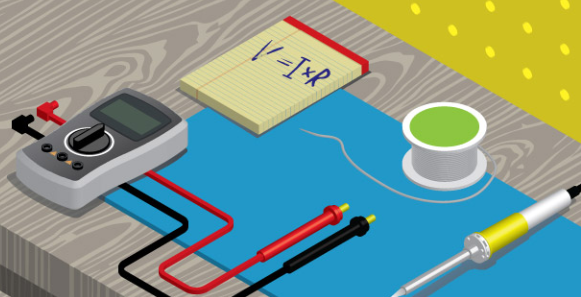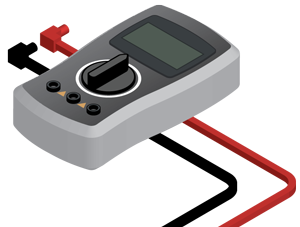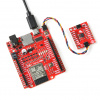As we enter June, many of us are still working, learning and existing solely from home. It isn't easy - we know this - and we can't wait to safely get back outside and back to our communities.
Something that has really helped us here at SparkFun is picking up new hobbies or projects. One of the most popular questions we get from people who visit our site is where the best place to start is. We will typically recommend some of our beginner soldering kits or our SparkFun Inventor's Kit to begin learning how to code, but one of our most valuable hubs of information is our Engineering Essentials page!
Electrical engineering is a technical discipline concerned with the study, design and application of electricity! Through electrical engineering, we can design devices and systems using electrical components such as resistors, capacitors, transistors, etc. Electrical Engineers can design and work on items such as super low-power microcontrollers, PCB design, high-power turbines, navigation systems, and more!
If you've ever been interested in learning electronics as a hobby in one way or another, our Engineering Essentials page is a great tool to utilize!
Interested in learning more foundational topics?
See our Engineering Essentials page for a full list of cornerstone topics surrounding electrical engineering.









I first started in electronics about 55 years ago, and it's been a wonderful hobby and turned into a wonderful career (and still a hobby!).
I would add for the beginner please don't be overwhelmed by it. There's a lot of things you can do, learning as you go. The SparkFun Inventor's Kit is a great place to start, though if you are a bit intimidated by the idea of computer programming, you might consider the SparkFun Inventor's Kit for micro:bit since the micro:bit uses "graphical" programming which is easier for the "raw beginner", though the kit doesn't include some things like motors that are in the Arduino-based one.
In any event, you should get a multimeter (sometimes called a "digital multimeter", or DMM). If you have a Harbor Freight in your area, watch the ads. You can sometimes get a DMM for "free" with any purchase (I've bought a pair of scissors -- always handy to have another pair). Considering the price, I've been impressed by the accuracy of these inexpensive meters, and frankly, they serve about 95% of my needs (though I do have far more expensive meters around for when I need them, usually for far more advanced things -- things that you likely won't run into for several years).
If you're reading this, you've already found SparkFun! There are a lots of other resources on the 'net, and if you have trouble understanding a concept from the explainations on one place, I encourage you to try another. A couple of other places that have some good explainations are Adafruit and Digi-Key. By the way, I've done business with SparkFun for nearly 10 years, Adafruit for at least 8 years, and Digi-Key for over 45 years, and have always gotten good service. There's also a lot of good info (though no stuff for sale) on Wikipedea, though (in my humble opinion) some of the explainations are not as easy for the beginner to follow. There's oodles of stuff on YouTube, but I'd suggest, at least for the beginner, to watch stuff that's linked to from one (or more) of SparkFun, Adafruit, or Digi-Key.
Good luck, and keep at it!
I came to say that ohms law is wrong on the pad - but you've corrected it - great work everyone, keep it up!